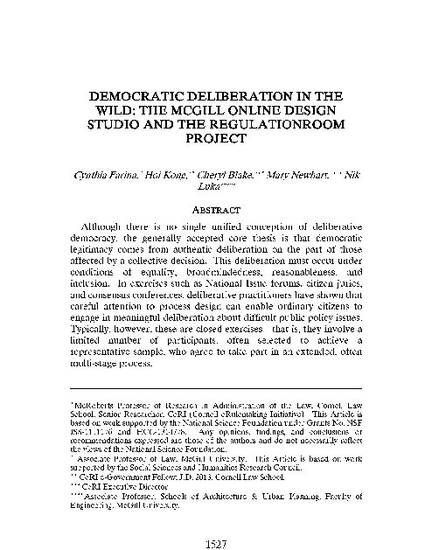
- Deliberative democracy,
- Cornell eRulemaking Initiative,
- CeRI,
- Citizen participation in government
Although there is no single unified conception of deliberative democracy, the generally accepted core thesis is that democratic legitimacy comes from authentic deliberation on the part of those affected by a collective decision. This deliberation must occur under conditions of equality, broadmindedness, reasonableness, and inclusion. In exercises such as National Issue forums, citizen juries, and consensus conferences, deliberative practitioners have shown that careful attention to process design can enable ordinary citizens to engage in meaningful deliberation about difficult public policy issues. Typically, however, these are closed exercises-that is, they involve a limited number of participants, often selected to achieve a representative sample, who agree to take part in an extended, often multi-stage process.
The question we begin to address here is whether the aspirations of democratic deliberation have any relevance to conventional public comment processes. These processes typically allow participation that is universal (anyone who shows up can participate) and highly variable (ranging from brief engagement and short expressions of outcome preferences to protracted attention and lengthy brief-like presentations). Although these characteristics preclude the kind of control over process and participants that can be achieved in a deliberation exercise, we argue that conscious attention to process design can make it more likely that more participants will engage in informed, thoughtful, civil, and inclusive discussion. We examine this question through the lens of two action-based research projects: the McGill Online Design Studio (MODS), which facilitates public participation in Canadian urban planning, and RegulationRoom, which supports public comment in U.S. federal rulemaking.
